BTC iShares MSCI Hong Kong ETF
Latest BTC iShares MSCI Hong Kong ETF News and Updates
Industrials Why China’s slowing consumption demand is an important threat
Real estate and construction are the two important drivers of China’s economic growth. They account for more than 20% of China’s gross domestic product (or GDP) when you also factor in cement, steel, chemicals, furniture and other related industries.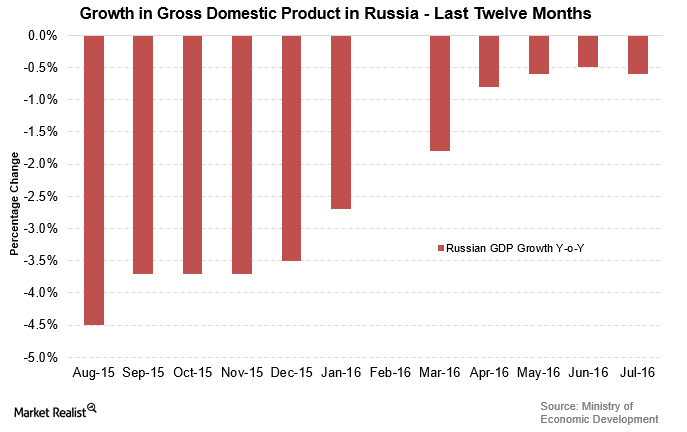
Russian GDP Continues to Fall, Taiwan’s Export Orders Drop
The Russian economy fell by 0.6% on an annual basis in July—compared to Market expectations of a 1.0% decline and lower than a decline of 0.5% in June.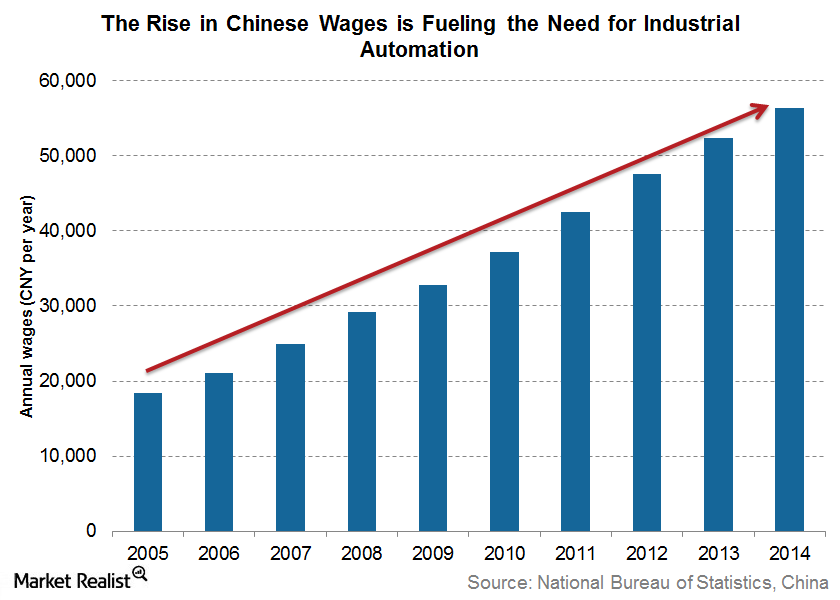
From Men to Machines: China’s Robotic Revolution
A quiet revolution is taking place in China. Few people will have heard of Shenzhen Everwin Precision Technology but this company is making history.
Asian Markets Are Weak amid Trade War Concerns
The Shanghai Composite Index declined 0.84% and closed the day at 3,136.63 on April 3. The SPDR S&P China (GXC) declined 2.4% on April 2.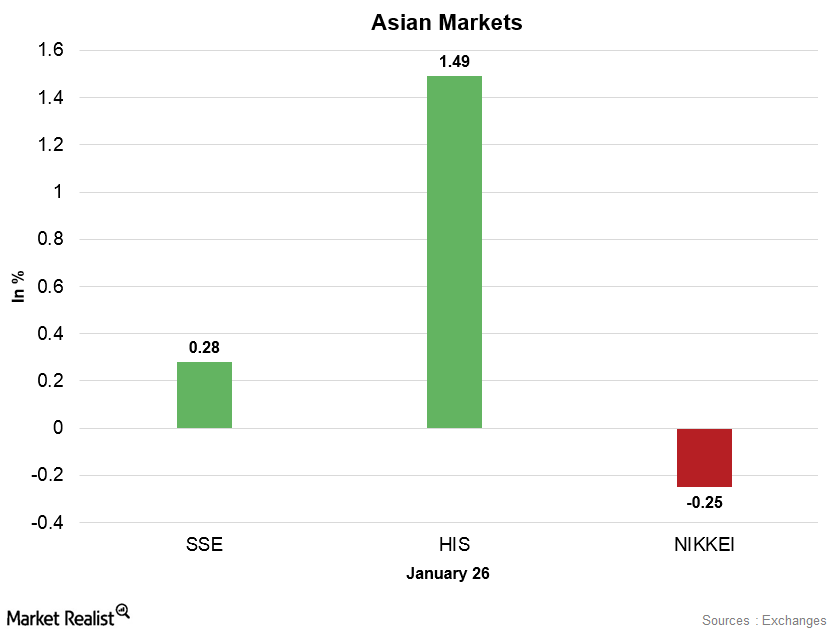
How Did Asian Markets Perform on January 26?
The Shanghai Composite Index rose 0.28% and closed the day at 3,558.13 on January 26. The SPDR S&P China (GXC) fell 0.42% on January 25.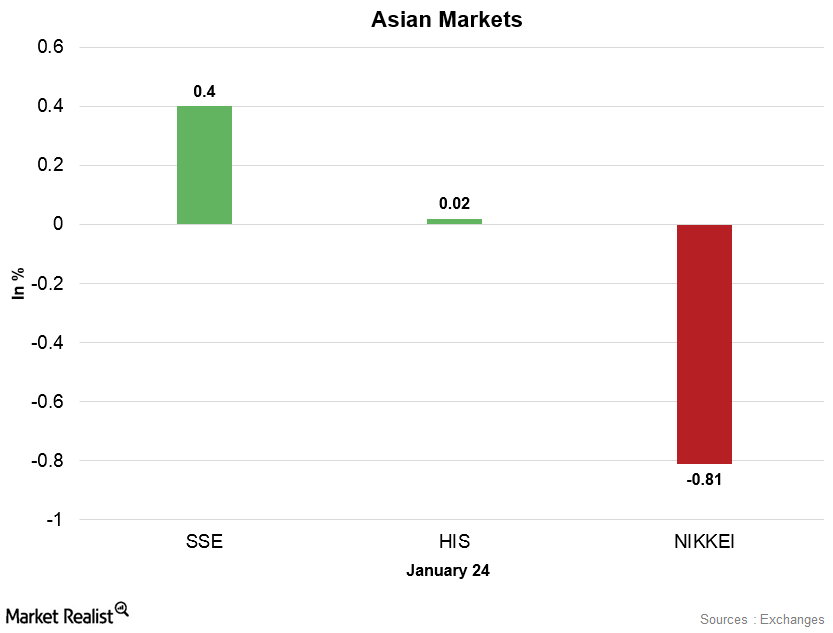
Why Are Asian Markets Mixed on January 24?
The Shanghai Composite Index rose 0.4% and closed the day at 3,560.73 on January 24. The SPDR S&P China (GXC) rose 1.3% on January 23.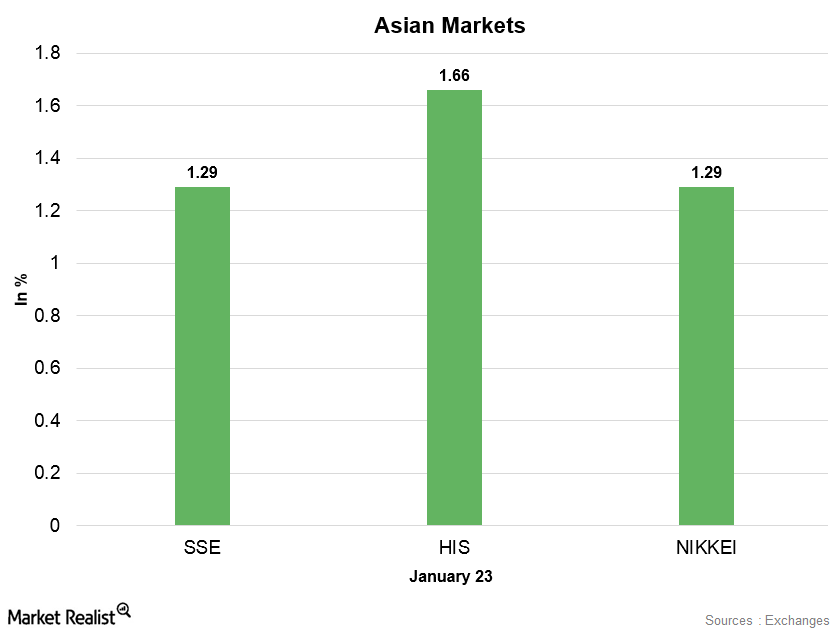
Why Did Asian Markets Increase on January 23?
On January 23, the Hang Seng Index rose 1.7% and closed the day at 32,930.70. The iShares MSCI Hong Kong (EWH) rose 0.87% on January 22.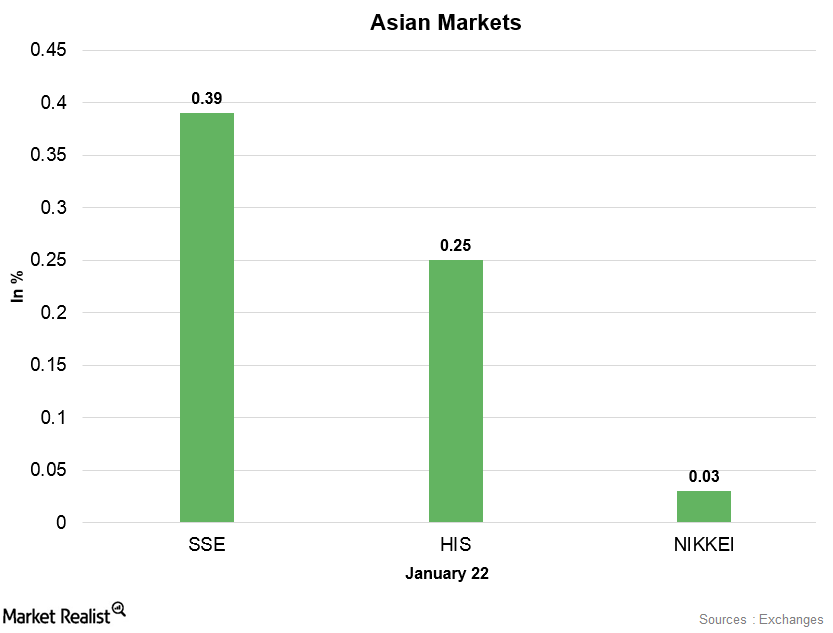
How Did Asian Markets Perform on January 22?
On January 22, the Hang Seng Index rose 0.25% and closed the day at 32,334.50. The iShares MSCI Hong Kong (EWH) rose 0.45% on January 19.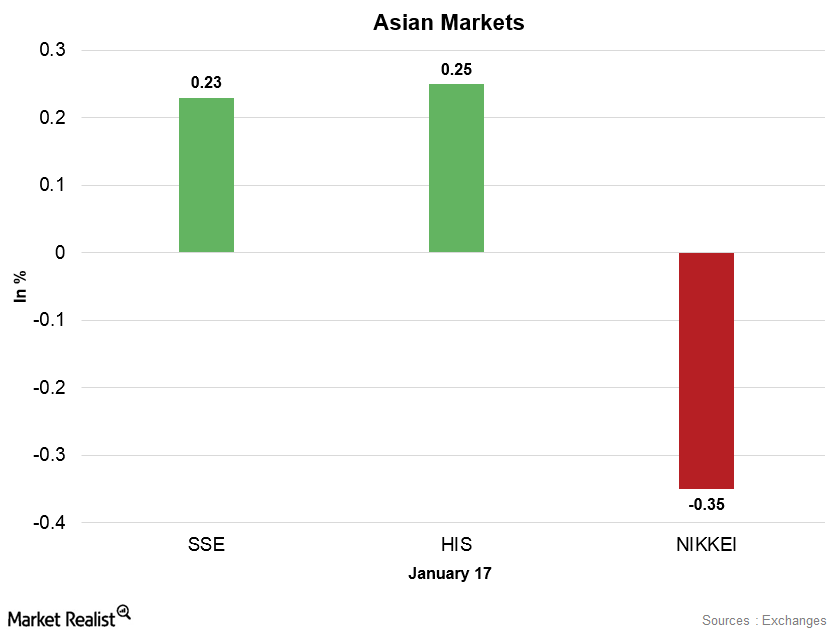
How Did Asian Markets Perform on January 17?
On January 17, the Hang Seng Index rose 0.25% and closed the day at 31,983.41. The iShares MSCI Hong Kong (EWH) rose 0.08% on January 16.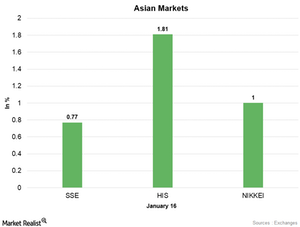
Why Did Asian Markets Rise on January 16?
On January 16, the Hang Seng Index rose 1.8% and closed the day at 31,904.75. The iShares MSCI Hong Kong (EWH) rose 0.65% on January 12.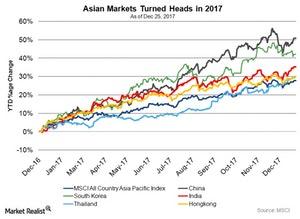
Why Asian Markets Grabbed Investors’ Attention in 2017
Stock markets around the world rallied in 2017. Asian equities, in particular, grabbed investors’ attention in 2017, as they have been outperforming other markets.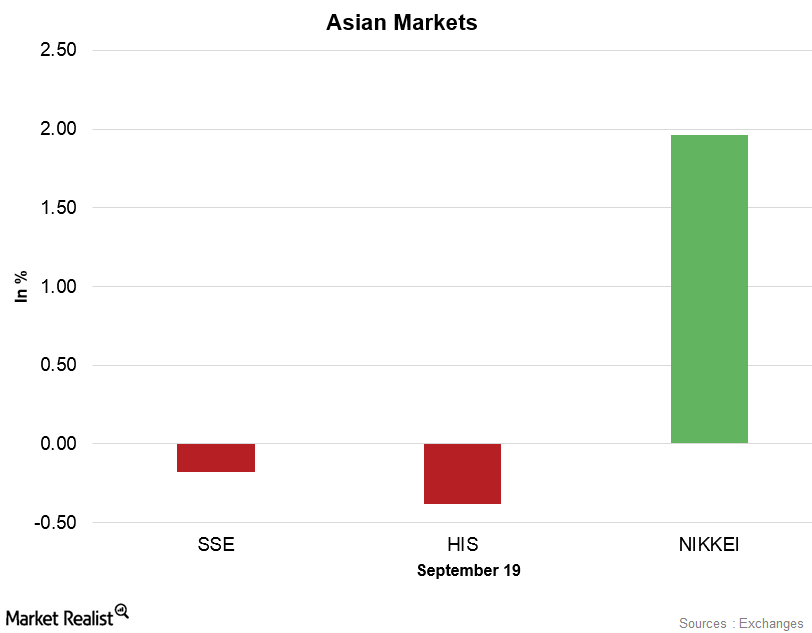
Asian Markets Are Mixed on September 19, Decreased Risk Appetite
On September 19, 2017, the Shanghai Composite Index fell 0.18% and ended at 3,356.84. The SPDR S&P China ETF (GXC) rose 1.1% and closed at 104.38.
Asian Markets Rose amid China’s Strong New Loans Data
On September 18, 2017, the Shanghai Composite Index rose 0.53% and ended at 3,362.86. The SPDR S&P China ETF (GXC) rose 0.54% and closed at 103.20.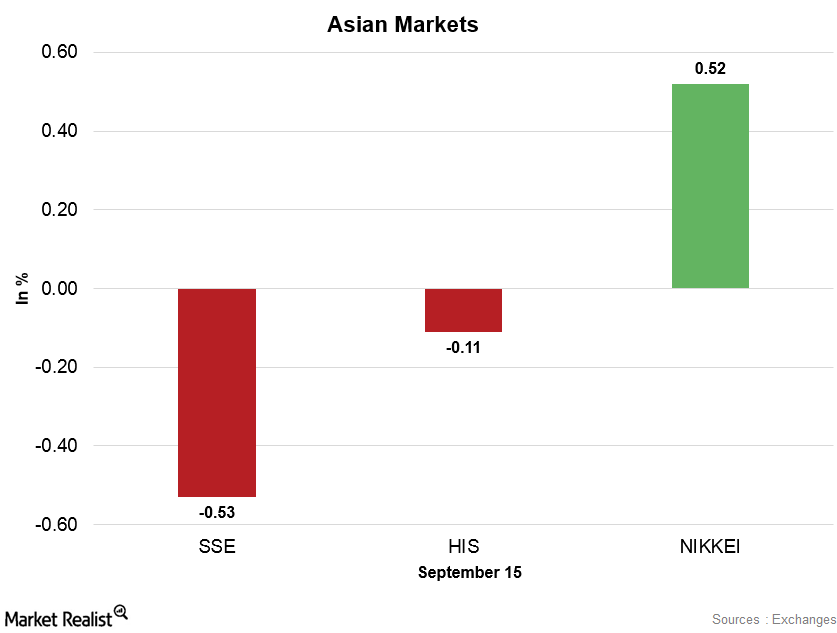
Asian Markets Are Mixed amid North Korea Tensions
On September 15, 2017, the Shanghai Composite Index fell 0.53% and ended at 3,353.62. The SPDR S&P China ETF (GXC) fell 0.1% and closed at 102.65.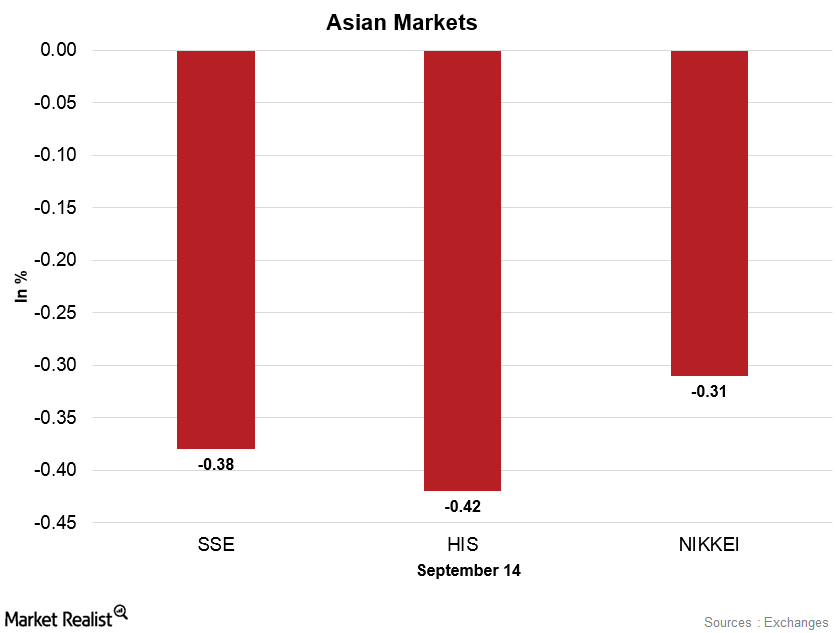
Asian Markets Pulled Back amid China’s Weak Economic Data
On September 14, 2017, the Shanghai Composite Index fell 0.38% and ended at 3,371.43. The SPDR S&P China ETF (GXC) rose 0.33% and closed at 102.75.
Asian Markets Started the Week on a Stable Note
On September 11, 2017, the Shanghai Composite Index rose 0.33% and ended at 3,376.42. The SPDR S&P China ETF (GXC) fell 0.53% and closed at 100.30.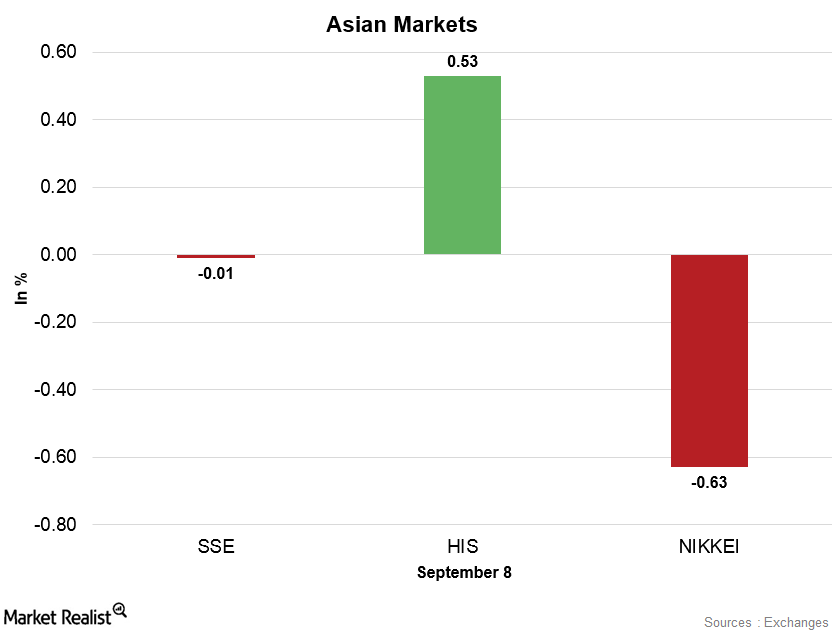
Asian Markets Were Mixed on September 8
On September 8, 2017, the Shanghai Composite Index fell 0.01% and ended at 3,365.24. The SPDR S&P China ETF (GXC) rose 0.78% and closed at 100.83.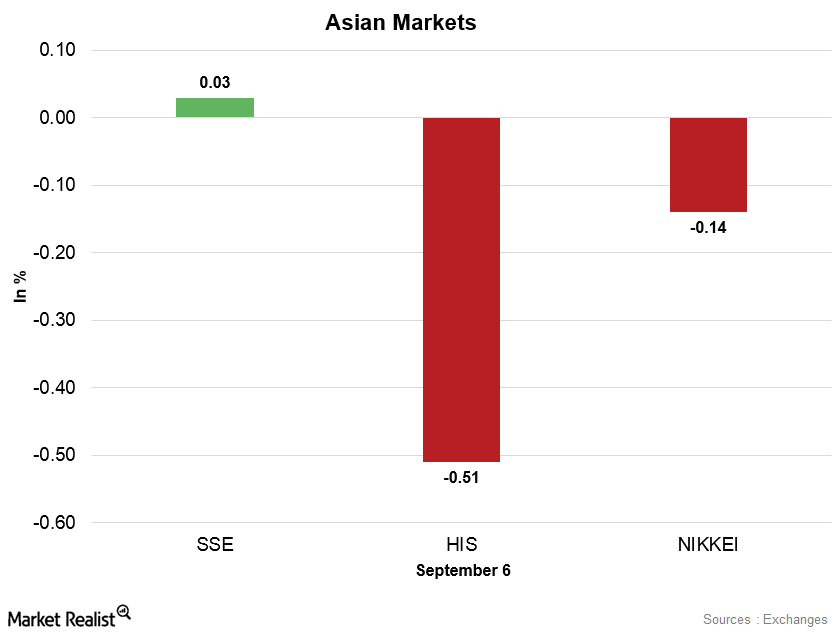
Asian Markets Lost Strength amid North Korea Tensions
On Tuesday, the Shanghai Composite started the day on a weaker note by opening lower. However, the market gained strength as the day progressed.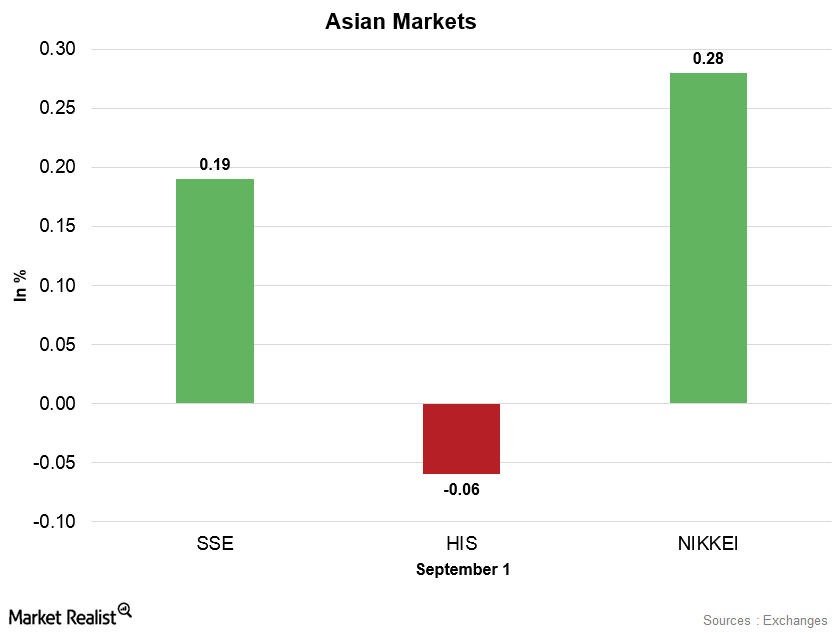
Asian Markets Are Stable on September 1
On September 1, 2017, the Shanghai Composite Index rose 0.19% and ended at 3,367.12. The SPDR S&P China ETF (GXC) rose 0.32% and closed at 100.65.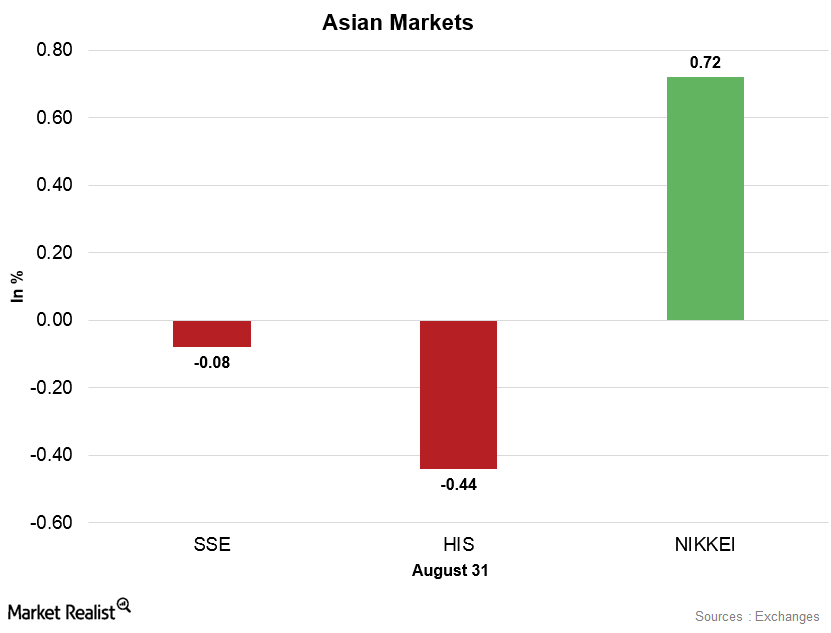
Asian Markets Are Mixed on August 31
On August 31, 2017, the Shanghai Composite Index fell 0.08% and ended at 3,360.81. The SPDR S&P China ETF (GXC) rose 0.83% and closed at 100.33.
Asian Markets Are Mixed amid Improved Market Sentiment
On August 30, 2017, the Shanghai Composite Index fell 0.05% and ended at 3,363.63. The SPDR S&P China ETF (GXC) rose 0.02% and closed at 99.50.
Asian Markets Are Weak on August 29 amid Geopolitical Tension
On August 29, 2017, the Shanghai Composite Index rose 0.08% and ended at 3,365.23. The SPDR S&P China ETF (GXC) fell 0.71% and closed at 99.48.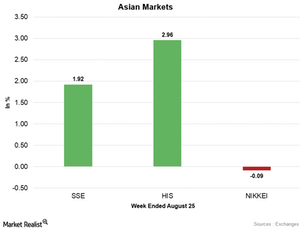
Why Were Asian Markets Mixed on August 28?
On August 28, the Shanghai Composite opened the day above the important resistance of 3,300 and rose to fresh 20-month high price levels.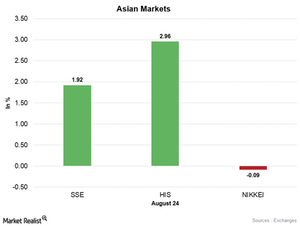
Asian Markets Rose in the Week Ending on August 25
After regaining strength last week, China’s Shanghai Composite Index continued to gain in the week ending on August 25.
Mixed Asian Markets, Shanghai Composite Fell the Most in 2 Weeks
China’s Shanghai Composite Index started this week on a stronger note after regaining strength last week. However, it consolidated on August 22–23.
Asian Markets Are Mixed on August 17, China Regains Strength
China’s Shanghai Composite Index fell last week. On August 17, 2017, the Shanghai Composite Index rose 0.68% and ended at 3,268.43.
Asian Markets Were Mixed on August 16, China Pulled Back
After gaining for seven consecutive trading weeks, China’s Shanghai Composite Index fell last week. The index started this week on a stronger note.
Asian Markets Buoyed by Increased Risk Appetite
After gaining for seven consecutive trading weeks, China’s Shanghai Composite Index fell last week. But despite weak economic data, the index rebounded on Monday.
Why Asian Markets Rebounded on August 14
Asian markets rebounded on Monday as concerns about the geopolitical tensions between North Korea and the United States abated.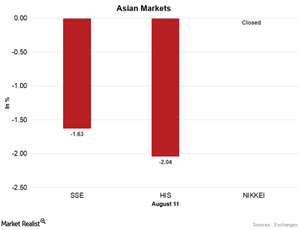
Asian Markets Continue to Weaken amid North Korean Strife
With an additional weakness in the markets due to tensions in North Korea, Japan’s Nikkei Index fell on Thursday to the lowest level in more than two months.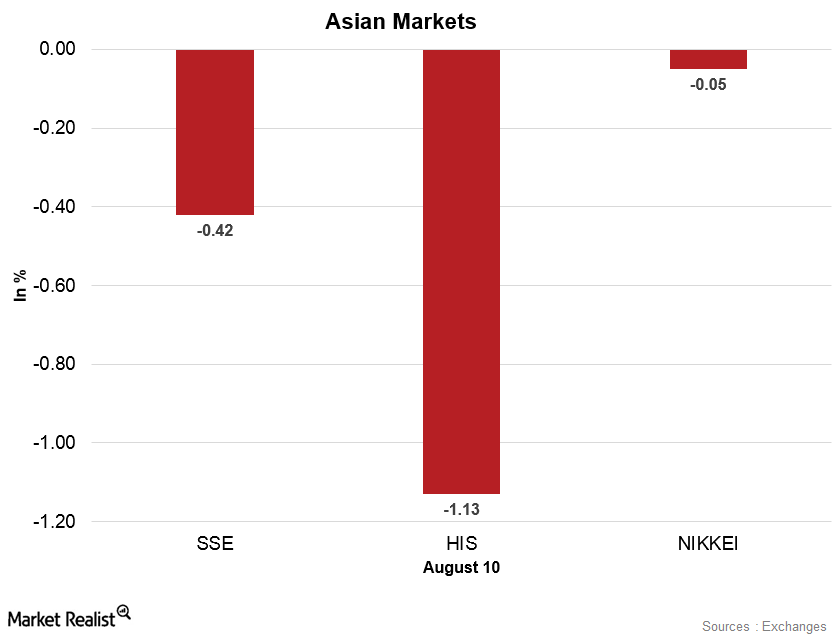
Asian Markets Are Weaker amid North Korea Tensions
On August 10, the Shanghai Composite Index fell 0.42% and ended at 3,261.75. The market is looking forward to the release of China’s new loans data.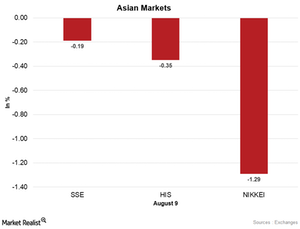
Asian Markets Pulled Back amid North Korea Tensions
On Wednesday, the Nikkei opened the day lower and closed at more than two-month lows. Increased tensions with North Korea weighed on the Nikkei Index.
Asian Markets Were Weak on August 4, Decreased Risk Appetite
On August 4, the Shanghai Composite Index fell 0.33% and ended the day at 3,262.08. The SPDR S&P China ETF (GXC) fell 0.05% to $96.77 on August 3.
Asian Markets Were Mixed in the Week Ending July 28
After gaining for five consecutive trading weeks, China’s Shanghai Composite Index started the week ending July 28 on a stronger note.
Asian Markets Started This Week on a Positive Note
After gaining for six consecutive trading weeks, China’s Shanghai Composite Index started this week on a stronger note.
Asian Markets Pulled Back on July 28
On July 28, the Shanghai Composite Index rose 0.11% and ended the day at 3,253.24. The SPDR S&P China ETF (GXC) fell 0.48% to $95.76 on July 27.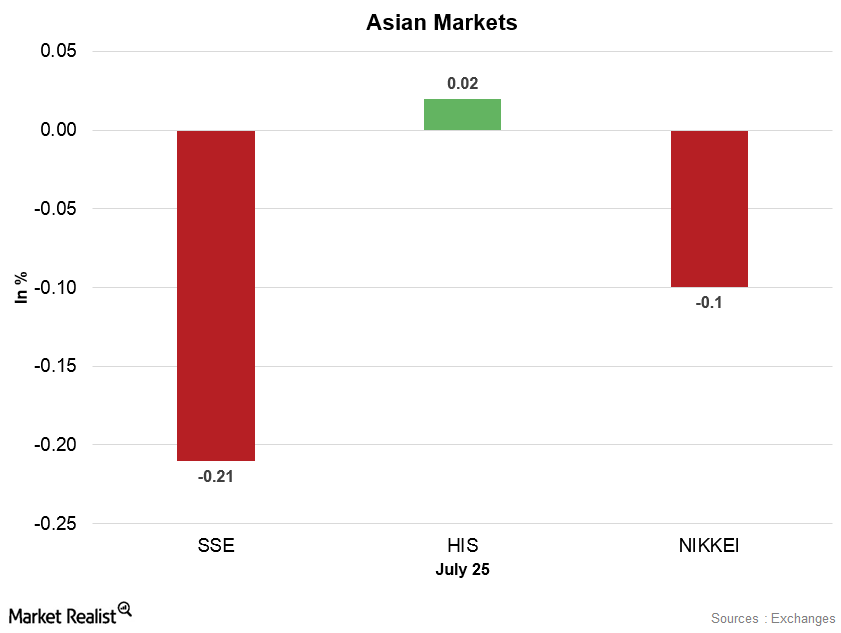
Asian Markets Maintained Strength on July 27
On July 27, the Shanghai Composite Index rose 0.06% and ended the day at 3,249.78. The SPDR S&P China ETF (GXC) rose 0.91% to $96.22 on July 26.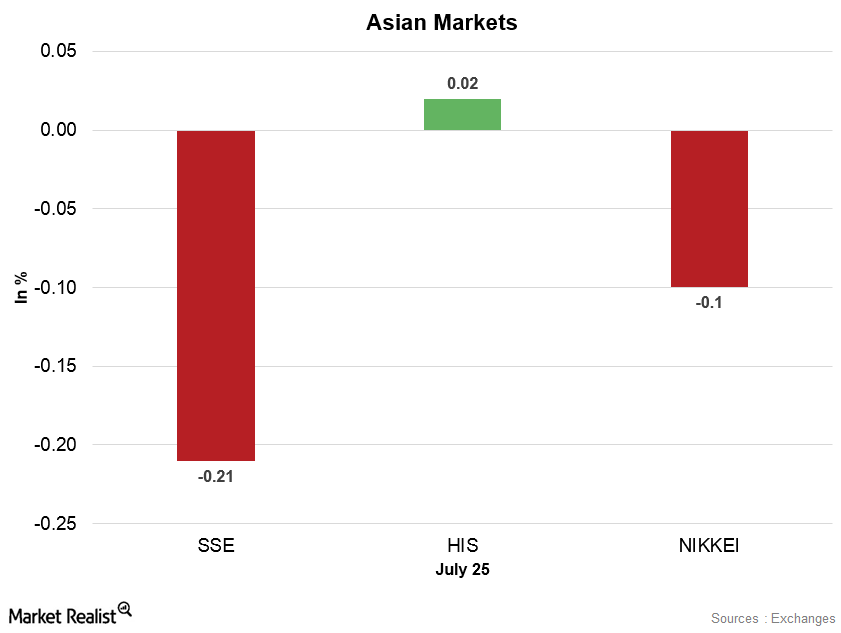
Asian Markets Lost Momentum on July 25
On July 25, the Shanghai Composite Index started the day on a stable note but ended the day with losses amid profit-booking.
Asian Markets Were Stronger in the Week Ending July 21
China’s Shanghai Composite Index started the week ending July 21 weaker by falling to almost three-week low price levels on the first day of trading.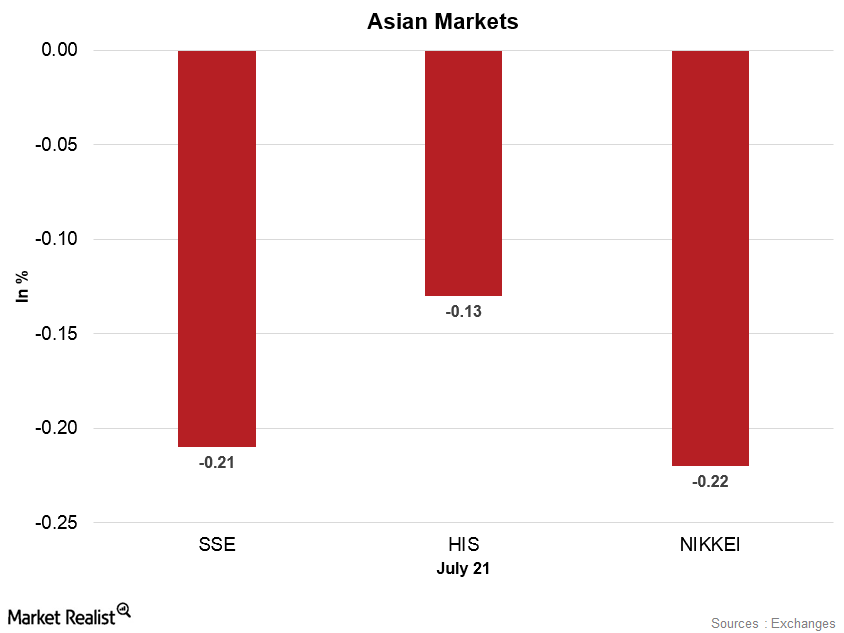
Asian Markets Pulled Back amid Dented Market Sentiment
China’s market regained strength this week amid improved market sentiment. It gained for three consecutive trading days until Thursday.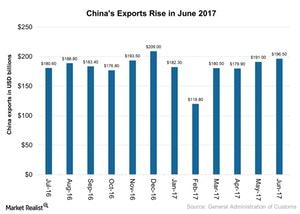
Chinese Exports Rose in June 2017 on Improving Global Demand
Chinese (FXI) exports stood at $196.6 billion in June 2017, a rise of 11.3% year-over-year basis and a rise of 8.7% month-over-month.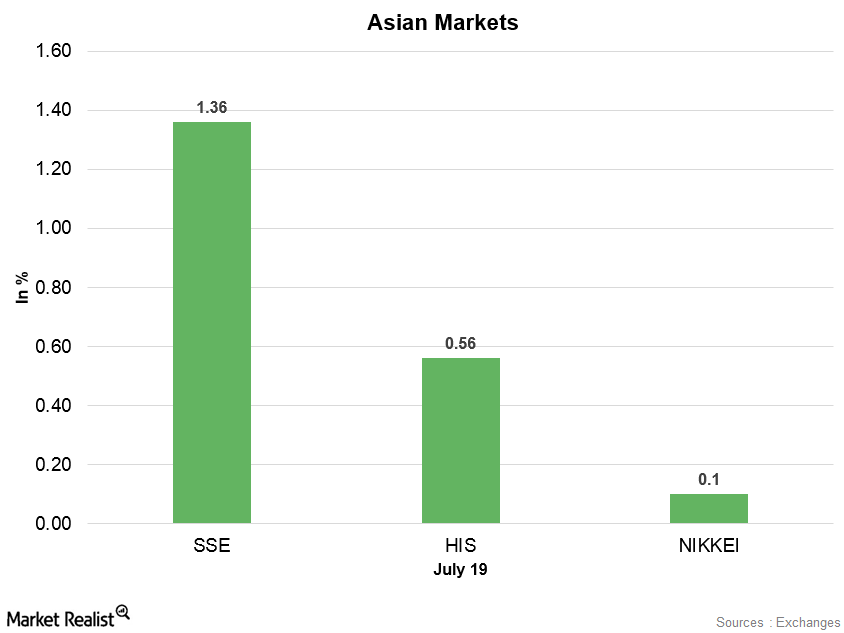
Asian Markets Rose Early on July 20
On July 20, the Shanghai Composite Index rose 0.43% and ended the day at 3,244.86. The SPDR S&P China ETF (GXC) rose 1.4% to $95.44 on July 19.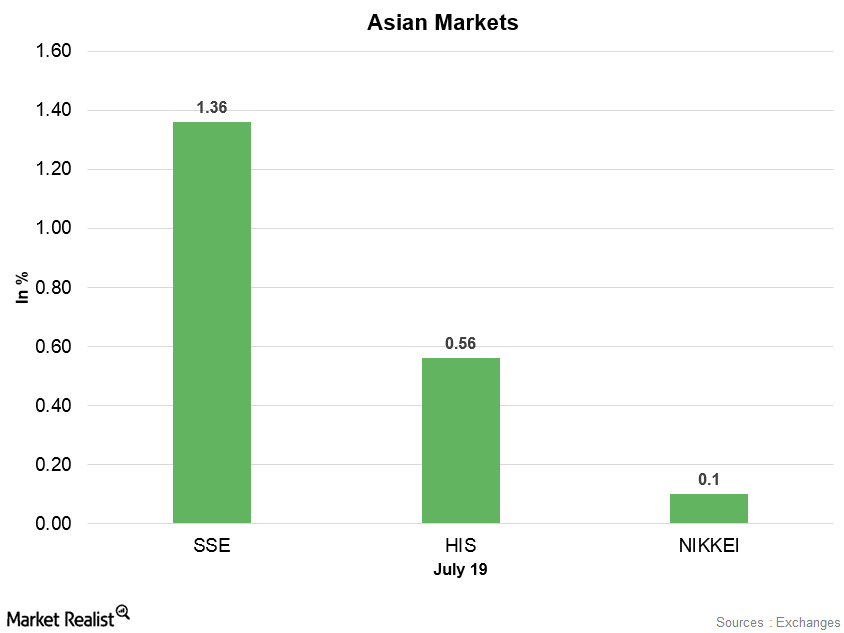
Asian Markets Are Strong, Japan Awaits Monetary Policy Statement
Japan’s Nikkei Index started this week on a weaker note by falling below 20,000 on Tuesday. On July 19, Nikkei opened the day lower but regained strength.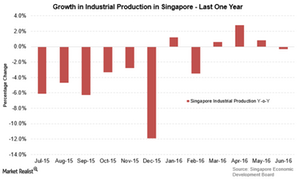
Why Did Singapore’s Industrial Production Fall?
Singapore’s industrial production fell on an annual basis by 0.3% in June—compared to a rise of 0.8% in the previous month and expectations of a 0.2% fall.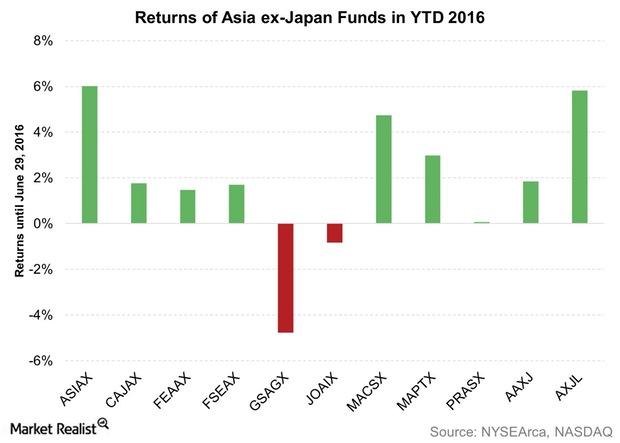
Is Asia a Compelling Investment Proposition?
Given the diversity it can provide due to its composition, Asia makes a compelling investment destination for investors who are looking for growth.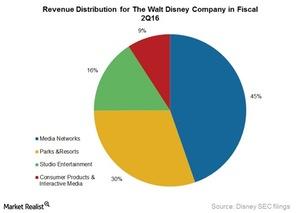
What Is Disney’s Core Strategy for Its US Theme Parks Business?
The Walt Disney Company’s (DIS) theme parks and resorts business is doing extremely well in the United States.
